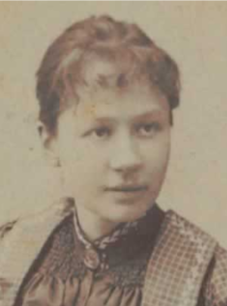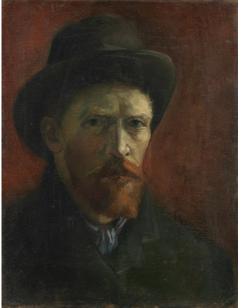- Home
-
Devotions
- Responding to Covid-19 Together
- Pastor's Devotions - May - June 2020 >
-
Pastor's Devotions - March - April 2020
>
- March 24, 2020
- March 25, 2020
- March 26, 2020
- March 27, 2020
- March 28, 2020
- March 30, 2020
- March 31, 2020
- April 1, 2020
- April 2, 2020
- April 3, 2020
- April 4, 2020
- April 6, 2020
- April 7, 2020
- April 8, 2020
- April 9, 2020
- April 15, 2020
- April 16, 2020
- April 17, 2020
- April 21, 2020
- April 22, 2020
- April 23, 2020
- April 24, 2020
- April 28, 2020
- April 29, 2020
- April 30, 2020
- Newsletters
- Calendar
- Worship
- Events
- Tenants
- Giving
The Fourth Friday in Eastertide
Acts 1:8
You will receive power when the Holy Spirit comes on you; and you will be my witnesses in Jerusalem, and in all Judea and Samaria, and to the ends of the earth.
It is still Easter. And Pentecost is coming …
___________________
Good afternoon!
I had started wading further into 2 Corinthians this morning, I had started to type, when someone floated the question, “How did Vincent van Gogh become famous? I know he lived and worked in obscurity; so, how did he get to be VINCENT VAN GOGH?”
We experience intellectual curiosity as emotional tension at my house. We reflexively set aside toast, coronavirus updates, virtual classrooms, and 2 Corinthians. We opened computers and iPhones. God bless the internet.
We discovered that there is an actual, unambiguous answer to our question, which we found courtesy of the Van Gogh museum’s website.
(Here is a link to the Van Gogh museum in Amsterdam. It is one of the best-designed websites I have ever seen. If you are looking for an enriching way to spend some time, if you’re an art lover and even if you aren’t, I commend this site to you: https://www.vangoghmuseum.nl/en)
Q: How did Vincent van Gogh become famous?
A: His brother Theo’s wife, Jo van Gogh-Bonger.
Theo van Gogh died two years after Vincent did, and Jo became a widow without means to support herself and her young son. Jo and Theo had aspired to advance appreciation for Vincent. Combining this hope and her need to survive, Jo worked diligently and strategically for years to introduce Vincent’s art to the world. She had hundreds of her brother-in-law’s paintings. She held exhibitions, she leveraged relationships with artists who admired Vincent and with critics, she judiciously sold Vincent’s paintings. She promoted Vincent’s art not only by making his paintings available for viewing, but by publishing the arresting letters Theo and Vincent had exchanged. By the time of her death, Theo’s and her hopes for Vincent had been realized: Vincent van Gogh was world-famous.
It occurs to me that there’s something of a parallel between van Gogh and Jesus, in the sense that Jesus was unknown outside Judea when he died, and as a portion of James Allen Francis’ well-known piece notes,
He never wrote a book. He never held an office. He never had a family or owned a home. He didn't go to college. He never lived in a big city. He never traveled 200 miles from the place where he was born. He did none of the things that usually accompany greatness. He had no credentials but himself …
To paraphrase Francis’ conclusion, “all of history’s notables, combined, have not had as much influence on the world as that one, solitary life.”
Today, among other things, Van Gogh has museums with generous patrons, collectors, appreciators, artistic offspring, and imitators.
Among other things, Jesus has cathedrals and masterworks created in his name. In varying degrees, Jesus has world class universities and scholars, hospitals and humanitarian organizations.
Jesus has the church. The church, meeting in tiny buildings, in storefronts, in homes, in baroque pipe-organ-monuments to monarchies, in enormous rooms organized around rock and roll, in countries where Christianity is illegal, in countries where taxes go to maintain church buildings.
Jesus has the church. Disciples. Christians. Us.
Vincent van Gogh had his sister-in-law, and things went from there.
Jesus had the disciples, Paul, the early church, and things went from there, to here and now.
Now, among other things, Jesus has us.
(I just had my daughter read the above, because I’ve been staring a the page too long to know whether what I’ve written is coherent. She read it and asked, “So are you asking people to do evangelism?”
“Hmm,” I said.
“I suppose so,” I said. “I suppose this goes there eventually. But what I’d say first is
that most people find van Gogh’s paintings compelling; people find van Gogh himself,
his story, compelling. Truly, grab-you-by-your-attention-gathering-apparatus
compelling.
“Is Jesus compelling as van Gogh? As in, ‘I don’t have to try to be interested,’
compelling? If not, then we’ve lost track of Jesus as Jesus is.”)
I’m rarely sure of anything, but I’m sure about this: if Jesus doesn’t swirl with light and color and life and movement, if van Gogh evokes a more animated response in you than Jesus does, then I’ve got some good news.
So, there you go. We got to evangelism.
Pentecost is coming. But it’s still Eastertide. Still some time to engage with Jesus, who is alive and, safe to say, compelling. “Judea, Samaria, and all the ends of the earth,” makes perfect sense if Jesus, Jesus himself, jolts you awake. Otherwise, evangelism … not so much.
Somehow it’s 4:30. Other conclusions and applications I leave to you.
If you’re willing, I’d love to hear what you come up with. Doesn’t need to be elaborate. Just reply to the email and put down a sentence or two. And/or, ponder what seems significant to you about what I’ve written and discuss it with a couple other folks.
Continue in prayer for me, for us, for all.
Grace and peace
Charlie
Acts 1:8
You will receive power when the Holy Spirit comes on you; and you will be my witnesses in Jerusalem, and in all Judea and Samaria, and to the ends of the earth.
It is still Easter. And Pentecost is coming …
___________________
Good afternoon!
I had started wading further into 2 Corinthians this morning, I had started to type, when someone floated the question, “How did Vincent van Gogh become famous? I know he lived and worked in obscurity; so, how did he get to be VINCENT VAN GOGH?”
We experience intellectual curiosity as emotional tension at my house. We reflexively set aside toast, coronavirus updates, virtual classrooms, and 2 Corinthians. We opened computers and iPhones. God bless the internet.
We discovered that there is an actual, unambiguous answer to our question, which we found courtesy of the Van Gogh museum’s website.
(Here is a link to the Van Gogh museum in Amsterdam. It is one of the best-designed websites I have ever seen. If you are looking for an enriching way to spend some time, if you’re an art lover and even if you aren’t, I commend this site to you: https://www.vangoghmuseum.nl/en)
Q: How did Vincent van Gogh become famous?
A: His brother Theo’s wife, Jo van Gogh-Bonger.
Theo van Gogh died two years after Vincent did, and Jo became a widow without means to support herself and her young son. Jo and Theo had aspired to advance appreciation for Vincent. Combining this hope and her need to survive, Jo worked diligently and strategically for years to introduce Vincent’s art to the world. She had hundreds of her brother-in-law’s paintings. She held exhibitions, she leveraged relationships with artists who admired Vincent and with critics, she judiciously sold Vincent’s paintings. She promoted Vincent’s art not only by making his paintings available for viewing, but by publishing the arresting letters Theo and Vincent had exchanged. By the time of her death, Theo’s and her hopes for Vincent had been realized: Vincent van Gogh was world-famous.
It occurs to me that there’s something of a parallel between van Gogh and Jesus, in the sense that Jesus was unknown outside Judea when he died, and as a portion of James Allen Francis’ well-known piece notes,
He never wrote a book. He never held an office. He never had a family or owned a home. He didn't go to college. He never lived in a big city. He never traveled 200 miles from the place where he was born. He did none of the things that usually accompany greatness. He had no credentials but himself …
To paraphrase Francis’ conclusion, “all of history’s notables, combined, have not had as much influence on the world as that one, solitary life.”
Today, among other things, Van Gogh has museums with generous patrons, collectors, appreciators, artistic offspring, and imitators.
Among other things, Jesus has cathedrals and masterworks created in his name. In varying degrees, Jesus has world class universities and scholars, hospitals and humanitarian organizations.
Jesus has the church. The church, meeting in tiny buildings, in storefronts, in homes, in baroque pipe-organ-monuments to monarchies, in enormous rooms organized around rock and roll, in countries where Christianity is illegal, in countries where taxes go to maintain church buildings.
Jesus has the church. Disciples. Christians. Us.
Vincent van Gogh had his sister-in-law, and things went from there.
Jesus had the disciples, Paul, the early church, and things went from there, to here and now.
Now, among other things, Jesus has us.
(I just had my daughter read the above, because I’ve been staring a the page too long to know whether what I’ve written is coherent. She read it and asked, “So are you asking people to do evangelism?”
“Hmm,” I said.
“I suppose so,” I said. “I suppose this goes there eventually. But what I’d say first is
that most people find van Gogh’s paintings compelling; people find van Gogh himself,
his story, compelling. Truly, grab-you-by-your-attention-gathering-apparatus
compelling.
“Is Jesus compelling as van Gogh? As in, ‘I don’t have to try to be interested,’
compelling? If not, then we’ve lost track of Jesus as Jesus is.”)
I’m rarely sure of anything, but I’m sure about this: if Jesus doesn’t swirl with light and color and life and movement, if van Gogh evokes a more animated response in you than Jesus does, then I’ve got some good news.
So, there you go. We got to evangelism.
Pentecost is coming. But it’s still Eastertide. Still some time to engage with Jesus, who is alive and, safe to say, compelling. “Judea, Samaria, and all the ends of the earth,” makes perfect sense if Jesus, Jesus himself, jolts you awake. Otherwise, evangelism … not so much.
Somehow it’s 4:30. Other conclusions and applications I leave to you.
If you’re willing, I’d love to hear what you come up with. Doesn’t need to be elaborate. Just reply to the email and put down a sentence or two. And/or, ponder what seems significant to you about what I’ve written and discuss it with a couple other folks.
Continue in prayer for me, for us, for all.
Grace and peace
Charlie



